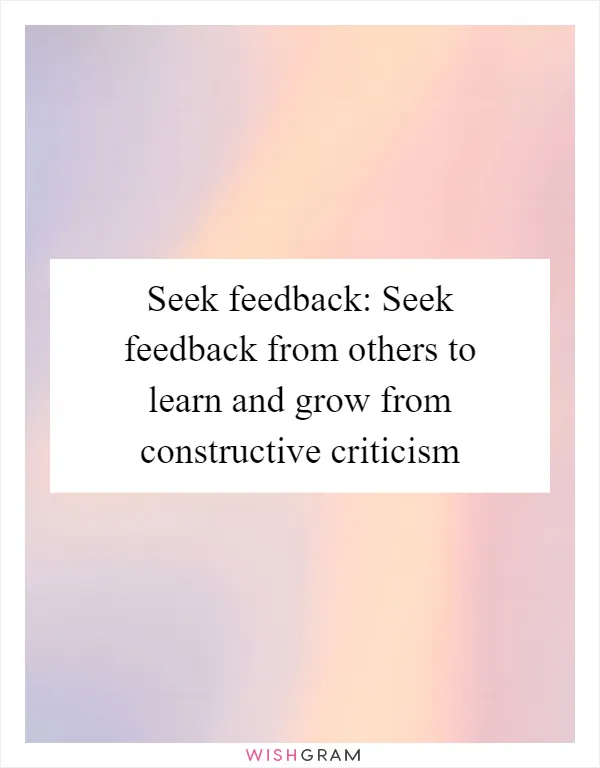Seek feedback: Seek feedback from others to learn and grow from constructive criticism
Seeking feedback from others is an essential part of personal and professional growth. Constructive criticism can provide valuable insights and help us improve ourselves. It allows us to gain a fresh perspective on our actions, behaviors, and decisions. By actively seeking feedback, we open ourselves up to new ideas and opportunities for development.
When we seek feedback, we demonstrate a willingness to learn and grow. It shows that we value the opinions and experiences of others. Constructive criticism can highlight areas where we may be falling short or where we have room for improvement. By embracing this feedback, we can make positive changes and enhance our skills and abilities.
Feedback from others can provide us with a different viewpoint that we may not have considered before. It allows us to see things from a different angle and gain insights that we may have missed on our own. This fresh perspective can be invaluable in helping us identify blind spots or areas where we can enhance our performance.
It's important to remember that seeking feedback is not about seeking validation or approval. Instead, it's about seeking honest and constructive input that can help us grow. Constructive criticism may not always be easy to hear, but it can be incredibly valuable in our personal and professional development.
When seeking feedback, it's crucial to create a safe and open environment for others to share their thoughts. Encourage honest and open communication, and assure others that their feedback is valued and appreciated. Actively listen to what they have to say, without becoming defensive or dismissive. Remember, the goal is to learn and grow, not to defend our actions or decisions.
Once we receive feedback, it's essential to reflect on it and consider how we can apply it to our lives. Identify patterns or recurring themes in the feedback received, as this can provide valuable insights into areas that may require attention. Take the time to evaluate the feedback objectively and determine how it aligns with our goals and aspirations.
It's also important to remember that not all feedback will be useful or relevant. We should use our judgment to filter out feedback that may not align with our values or goals. However, it's crucial to remain open-minded and consider feedback even if it challenges our preconceived notions.
Seeking feedback is an ongoing process. It's not a one-time event but rather a continuous effort to learn and grow. By actively seeking feedback from others, we can gain valuable insights, identify areas for improvement, and enhance our personal and professional development. So, let's embrace feedback and use it as
